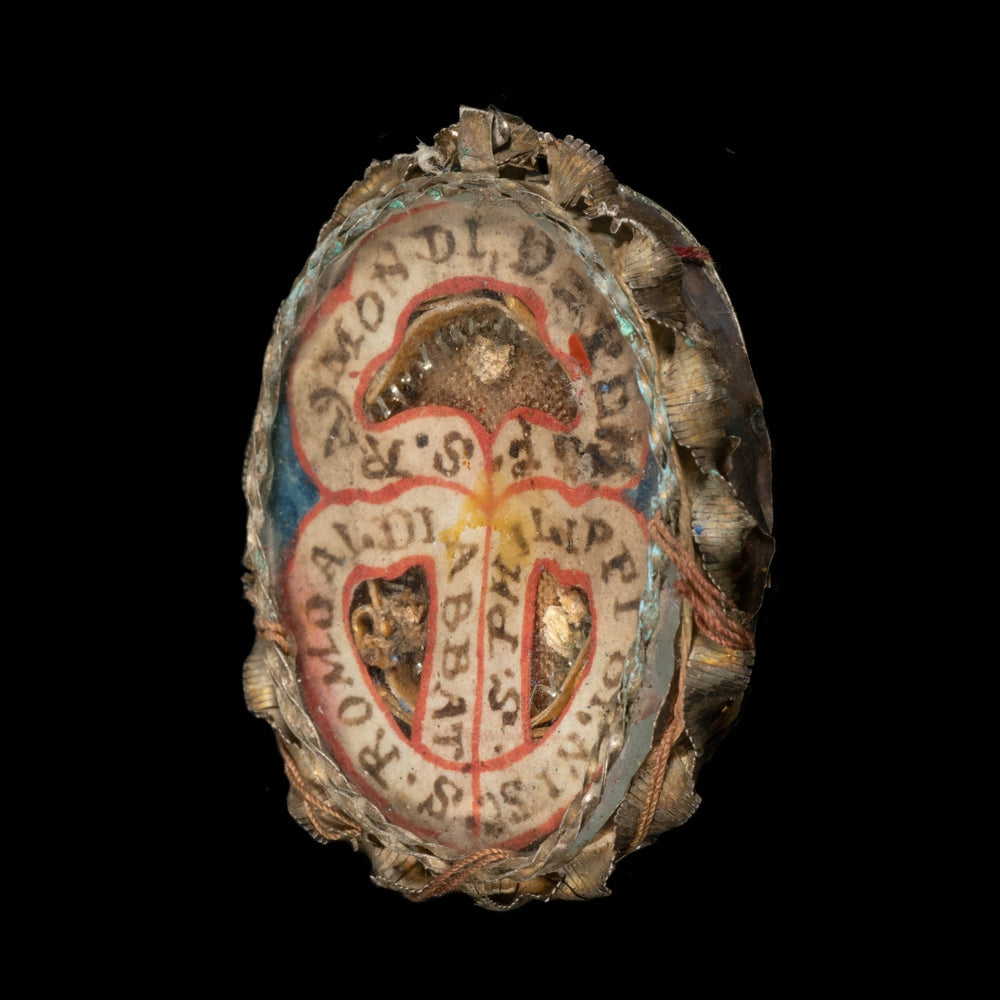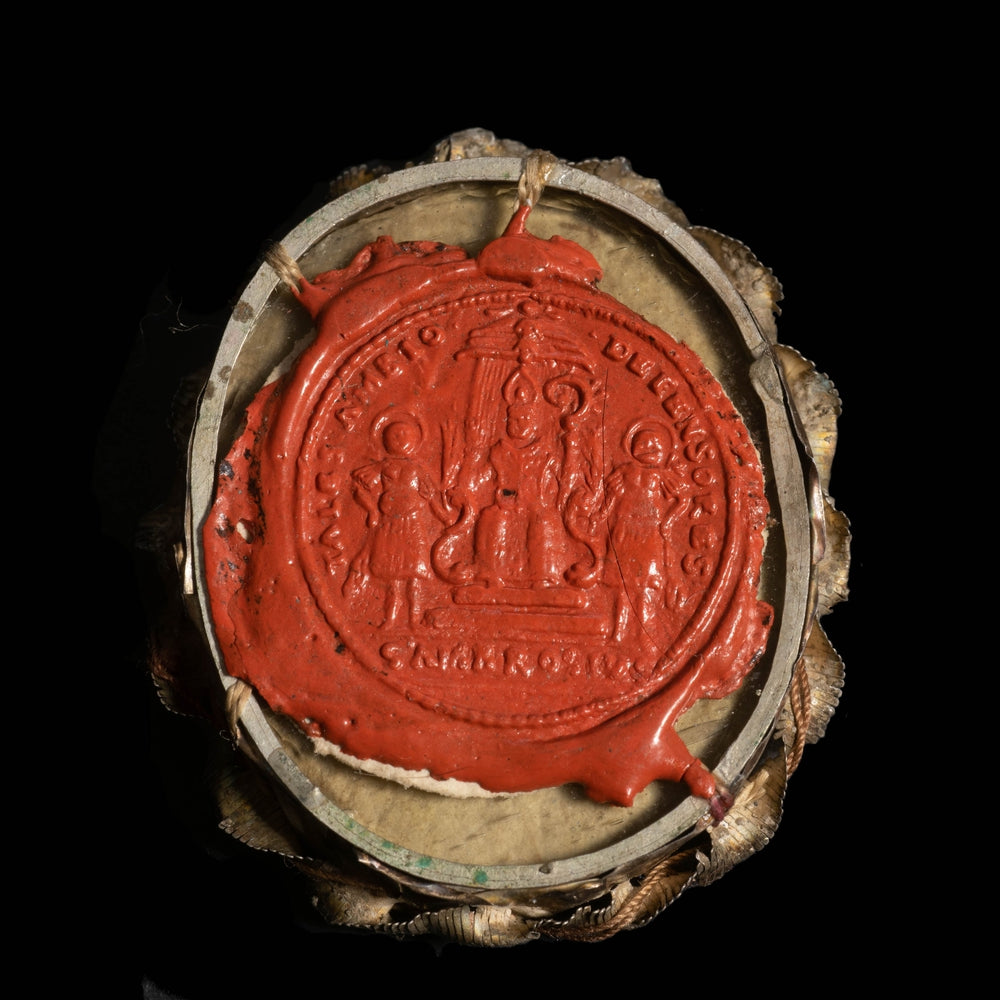RELIQUARY, RELIC OF SAINT ROMUALD, RAYMOND DE PENAFORT, PHILIPPE BENITIUS
RELIQUARY, RELIC OF SAINT ROMUALD, RAYMOND DE PENAFORT, PHILIPPE BENITIUS
Shipping calculated at checkout.
Our prices are in euros, the prices converted in dollars or other currencies can vary according to the rate.
Worldwide shipping
ref: #RK00-216Couldn't load pickup availability
Rare reliquary with two glass fronts, containing the first class Ex Ossibus relics of Saint Romuald, Saint Raymond of Penafort and Saint Philip Benitius (Benizi) . The relics are fixed on a fabric background decorated with silver threads, they are identified in Latin on a handwritten label. as S.Philippi Benis / S.Romual. di Abbat / S.Raymon di ...
Good used condition with its original glass.
Not open.
Ecclesiastical seal and son present.
ERA : 18th century
DIMENSION : 3.6m x 3.1cm
SIZE : 1.4" X 1.2"
Saint Philip Benizi was a priest and member of the Order of the Servants of Mary in the 13th century. He was born in 1233 in Florence, Italy. He played a vital role in reconciling the rival factions of his order and was elected superior general of the Servites. He also worked to spread Marian devotion and Christian unity. Canonized in 1671, he is venerated as Saint Philip Benizi and his feast day is celebrated on August 23.
Saint Romuald was a 10th-century Italian monk and the founder of the Camaldolese order, a branch of the Benedictine tradition. He was born in 951 in Ravenna, Italy. Romuald led a life of severe asceticism, advocating solitude and contemplation. His spiritual teaching influenced many monks and monasteries in Europe. He is venerated as a saint in the Catholic Church and his feast day is celebrated on June 19. His spiritual legacy lives on through the Camaldolese order and his example of seeking holiness in solitude and prayer.
Saint Raymond, also known as Saint Raymond of Penyafort, was a 13th-century Spanish Dominican priest. He was a learned theologian and advisor to the pope. He is best known for compiling the papal decretals into the "Decree of Gratian", which served as the basis of the canon law of the Catholic Church for centuries. He also played a major role in the redemption of Christian slaves captured by the Moors. His feast day is celebrated on January 7, the day of his death in 1275.







